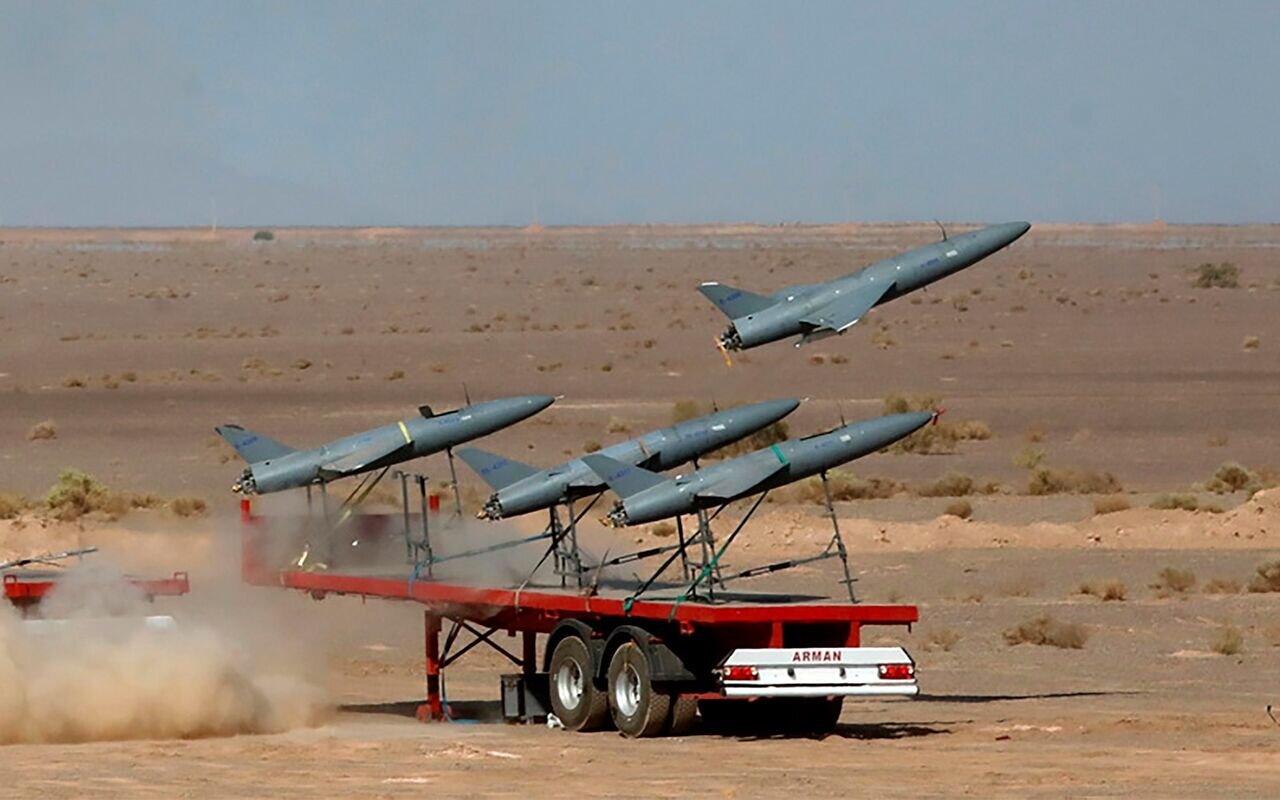World on queue to purchase Iranian drones: U.S. think thank

TEHRAN- Military analysts and experts in the West have invariably emphasized that Iranian drones have proven their effectiveness in real battlefields and, as a result, have been met with great interest from many countries.
The military analytical platform “Breaking Defense,” in a recent report, evaluated one of the global consequences of the missile and drone Operation True Promise and stated that despite the extensive cooperation of several countries alongside Israel with Tehran’s launched weapons, the global interest in Iranian drones is not diminishing, and analysts say there is a highly enthusiastic market worldwide for accessing and purchasing relatively cheap and efficient Iranian drones.
The report’s author added that perhaps Israel and its allies were able to deal with the large number of 300 drones and missiles that Iran launched in its unprecedented attack on Israel, but according to analysts, this has not deterred potential customers of Tehran’s unmanned aerial vehicles.
Fabian Heinz, a defense and military researcher at the International Institute for Strategic Studies, believes that most countries, interested in Iranian drones, want to use them against powerful enemies such as the United States and Israel.
For these countries, the advanced capabilities of enemies such as the United States in tracking these weapons are not so concerning. Iranian offensive drones have proven their effectiveness well.
Samuel Bendett, an artificial intelligence and unmanned systems expert at the CNA Institute in Washington, also stated that Israel’s opposition will not have an impact on Iran’s sales market, especially to countries seeking to adopt a politically and militarily independent approach from the West.
The report, with details of the number and types of drones and missiles used by Iran, claimed that Iran launched 170 Shahed 131 and 136 drones, along with over 30 cruise missiles and more than 120 ballistic missiles towards targets in Israel.
According to the analysis, in recent years, the Shahed drone family has attracted widespread attention worldwide due to successful use in several operational scenarios, with the most prominent display being in Ukraine.
Jean-Marc Rickli, the head of global risk and resilience at the Geneva Centre for Security Policy (GCSP), also claimed to Breaking Defense that Ukraine provided a powerful showcase for the Shahed drones, even if these drones failed in the attack on Israel, they proved that they impose a significant cost on the adversary.
He also stated that the use of expensive missiles to destroy these inexpensive drones incurs a high cost, and more importantly, it eliminates the defender’s capabilities. In the case of Israel, the interception of drones costed more than the drones themselves.
He also pointed out that the calculation has made Iranian drones attractive to many international buyers, adding that the potential market for Iran includes countries that are sanctioned by the West or have no fear of sanctions and are not willing to accept Western conditions when selling weapons.
According to this report, interest in purchasing Iranian drones has increased even more after extensive debates and denials about Russia’s use of these aircraft against Ukraine.
Several months later, a senior Iranian official announced that 22 countries have expressed interest in buying Iranian-made drones. Yoav Gallant, Israel’s Defense Minister, also claimed in February that 50 countries are negotiating with Tehran to purchase missiles and drones from the country.
Even an analyst from FDD said that “Iranian drones are now present in operational theaters on four continents: Asia, Africa, Europe, and South America.”
The report also mentioned Iran’s competitors in the drone market and added that analysts consider Iranian drones a cost-effective solution. Despite China leading in drone exports, experts say that Iran goes beyond Beijing and has few competitors in its niche market.
It was also emphasized that Iran has proven efficiency in high-altitude, combat, and suicide drones. While there are indeed some companies in this market, but Iran does stand out.
According to the abovementioned analysis, many experts were taken aback when they first encountered reports of Russia’s dependence on Iranian drones.
Last year, Brigadier General Talaei-Nick, the Deputy Defense Minister, said that there are some European countries willing to purchase Iranian drones, pointing to the requests sent to Iran for its drones.
The general said that some locally-made defense products are for sale, adding that in case Iran is sure that drones would not be used inappropriately, the country is ready to export some of its drones, considering the domestic needs and the capacity of the production.
On purchasing weapons, he said domestic products are prioritized, but in cases when foreign supplies are needed to meet the needs, especially in the field of air combat, the country will move according to its needs.
The general said the type of equipment that is needed should be evaluated in comparison with its domestic ones and similar ones in other countries.
Moreover, he said, it should be confirmed in terms of price and quality by authorities and that buying weapons from abroad is a long-term process.
General Talaei Nik also pointed to the training process which is needed for special types of weapons, where the foreign parties’ cooperation is also needed.
The deputy defense minister added that financial provision and signing contracts must be done within a predetermined process, which take place within the framework of legal and international considerations.
The Defense Ministry official also said “exchanges with Russia” are still going on, noting that none of the “previously agreed exchanges” with Russia have been canceled.
